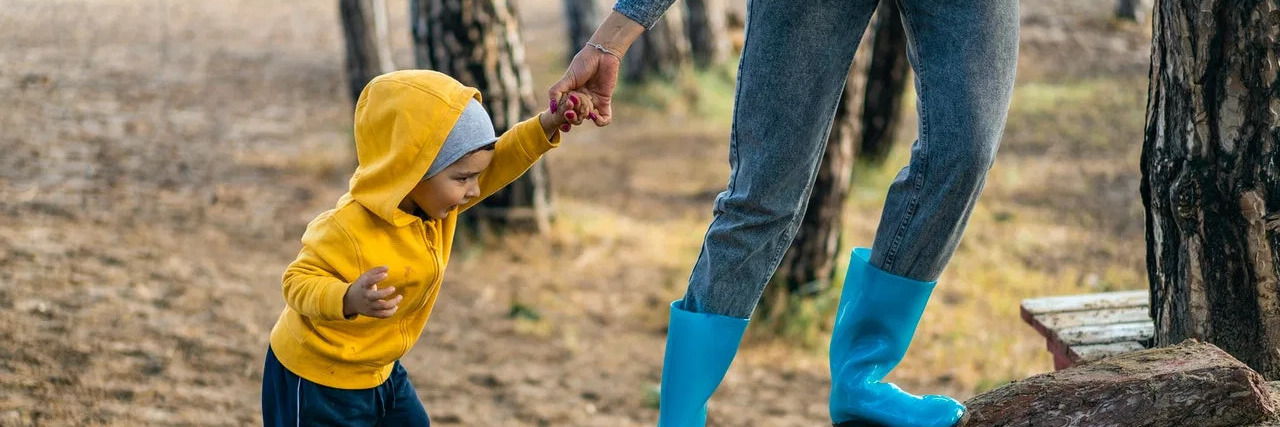Getting Started
I remember when our son was born and we came home from the hospital. It was hard at first to let people know our new baby was born with Down syndrome. I’ll never forget how horrible I felt when our older neighbor didn’t understand any of my attempts to describe trisomy 21. I ended up muttering the R-word under my breath to try to get him to understand.
I wasn’t equipped to handle that situation. I’m still embarrassed to this day about that moment. I’m writing this piece to help others become advocates themselves. I hope no new parent ever has to have that experience I had. I handled it so poorly.
Formal Advocacy for Down Syndrome
Merriam-Webster defines advocacy as “the act or process of supporting a cause”. Simply put, being an advocate means that you make positive actions to improve the lives of people with Down syndrome and their families.
Formal advocacy comes in the form of supporting local, state, and federal laws that aim to improve the lives of people with Down syndrome. The National Down Syndrome Society, or NDSS, is an excellent resource for learning about what advocacy campaigns are being supported in your area.
The ABLE Act is a great example of people coming together to support individuals with disabilities. This allows people to set up a protected savings account that does not count against their assets when calculating their eligibility for social services. This allows individuals to save $15,000 a year to support themselves. Before this act, having $2000 or more in assets would disqualify them from services.
Self-Advocates
Every person with Down syndrome has their own abilities and strengths. Many people with disabilities can advocate for themselves. NDSS has self-advocacy programs called DS-Ambassadors.® People speak in Washington and in their local courts for improved rights.
The Special Olympics is another example of people showing their skills and advocating for themselves. We have friends that run and swim in the Special Olympics. Our good friend’s daughter was featured in an ad campaign.
There are actors and athletes who are constantly making headlines and helping millions of people learn more about Down syndrome. You can find many people working jobs in your community and doing their part to contribute. All of those actions promote self-advocacy.
I Share My Knowledge About Down Syndrome
Advocacy doesn’t need to be a formal act getting laws passed in Congress. There are so many ways that I promote and share information about people with Down syndrome. Whether I’m sharing posts on Facebook or talking to my friends and co-workers, I’m spreading awareness.
I’ve written in the past about how little I knew about Down syndrome when my son was born. It was like my eyes were opened to a whole new world. I want everyone to join this new world that I live in now. There are so many amazing people doing awesome things. I write this blog not only to bring people together and provide support for other parents, but to spread awareness.
It’s funny, people will ask me, “Is it OK if I share your post about your son?” Yes! I want everyone to read what I have to say. I put a lot of work into marketing the site to share our experiences. I want people to know that getting a diagnosis isn’t a lonely, sad thing. You’re part of something big, and there’s more support now than ever before. I wish everyone would share my posts with everyone they know.
Participating in Group Events and Buddy Walks
Participating in your local Down Syndrome Association is an excellent way to advocate for your friend or loved one. Some groups are more active than others. Many of the events are low or no cost to families.
I love walking around meeting new parents and making connections. Having maybe a moving conversation or connecting people with similar questions. Buddy Walks ® are annual events that are set up like small fairs. They’ll be food, music, and at some point, everyone walks together to support people with Down syndrome.
My wife is an active member of our board for the Down Syndrome Association of Central New Jersey. Which always makes me feel like a member too in a small way. I’ve just recently applied for a more active role on the board because sometimes writing this blog doesn’t feel like enough. I want to do more to help the Down syndrome community.
My wife and some other board members were talking to some new parents recently and I about jumped out of my seat. I wanted to be on that call so bad. I love talking to new dads, answering questions, giving people comfort while navigating a new experience.
The DSACNJ throws events throughout the year that are genuinely fun to attend. Each year they have a dance and auction called Rock Your Socks Off that gets an amazing turnout. Unfortunately, it has been postponed due to COVID-19, but I’m looking forward to the next event when it returns.
Every Little Bit Helps
Tell people about someone you know with Down syndrome. Talk about a family member with a disability when talking with your friends. Ask questions when people sound uninformed. Call people out when they use the R-word, or at least say something to help educate them.
The world is a much more loving place than it was 30 years ago. People in schools are involved in and play with their peers with disabilities. The internet has brought together so many people from all across the world.
I hope this helps you feel more confident about shouting from the rooftops that you support and love someone with a disability.
How do you advocate for your friends or loved ones?
This story originally appeared on Things Unsaid Said.

